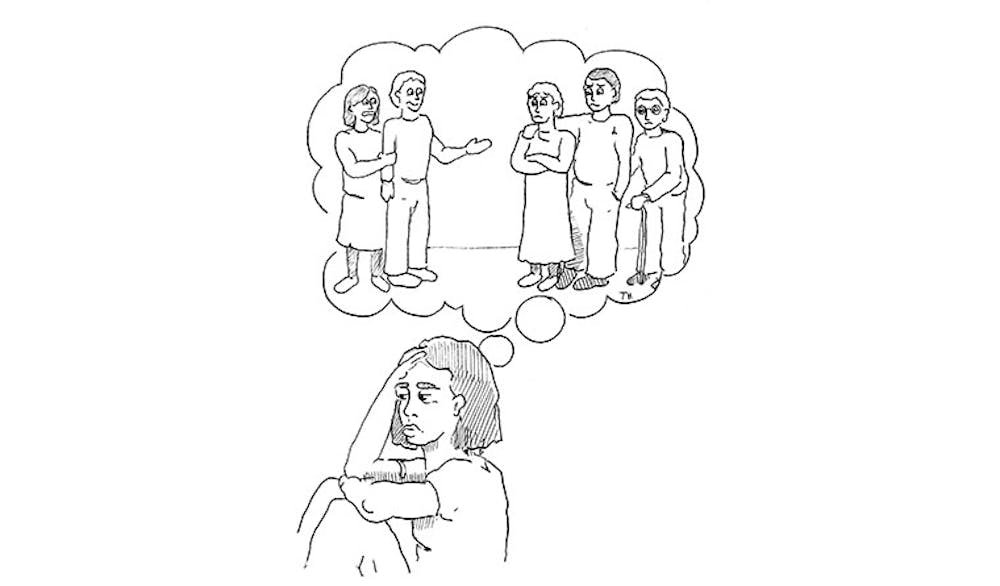All relationships are complex. Along with happiness, mutual support, love and respect, there are tensions, arguments and misunderstandings. We all expect these things when we first start dating someone. But we don’t expect something else to interfere and render conversations about the future useless.
Just three days after our first date last September, Dalia* and I were exclusive. It’s rare at Penn—where it seems that most people are involved in back–burner relationships and casual hookups—to find someone who makes you want to forget all other options. We support each other regardless of our own stresses, we never fight and we want similar things out of life. In short, we get along well.
There’s just one problem. Dalia’s family is deeply religious and conservative. They have a hard time accepting that someone outside of their own faith can have the same kinds of values, principles and standards as they do. Keeping their children faithful to the religion is worth a lot of points on the day of judgment and in the afterlife, I am told. Apparently, worth more than their daughter’s happiness in this life.
Like many children of immigrants, Dalia is not as close to the culture and faith as her parents are. Given the choice, she would be flexible about who she dates and spends her life with. She would put me in her profile picture on Facebook and invite me to join her family for dinner. She would choose the freedom to see if our connection will last.
It’s easy to see her parents as villains, and it’s easy to rage against the religious machine that makes no allowances for love and instead values the perpetuation of the religion over all else. But Dalia tells me that her parents are wonderful people. She tells me that we would get along if we spent time together. The only problem is that I am agnostic and have given little thought to God beyond a vague notion that there might have been a “watchmaker” who set the universe in motion and long ago stopped deciding who wins the Super Bowl each year.
If our relationship were a movie, we would reject these expectations and run off together into the sunset. The best love stories are about couples who overcome the odds to be with each other. Often left untold in those narratives, though, are the relationships lost when they reject their families’ wishes. I want to get along with my in–laws, whoever they are. I want my future spouse to feel supported by a family that loves her and embraces her choices—not one that gives her the cold shoulder.
Is that too much to hope for?
At Penn, where so many different cultures overlap in one small place, there are probably a lot of people in our situation. Our generation is more tolerant and open–minded than our parents', but the disparity between the two causes conflict.
Over the past five months that I have been with Dalia, I have thought a lot about the role of religion in the modern world and why these arbitrary systems of belief influence the decisions and actions of billions of people. What makes people who are firm in their faith want to control the faith and happiness of their children? Why do they not let their children experience other value systems with the confidence that their children will survey the options, independently determine that their parents’ worldview is the most compelling and become self–actualized in their faith? Isn’t control a sign of insecurity?
My hope is that for every couple who resigns in the face of cultural divides, another will follow their hearts across them and let love decide.
As for me and Dalia, anything could happen. Our present is simple and wonderful—but our future is complicated.

